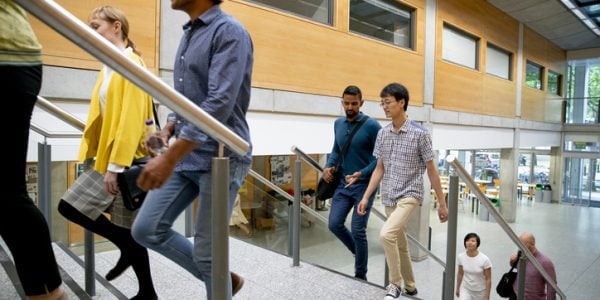We want to understand how people make decisions about higher education, its accessibility, and the outcomes for both individuals and society.
Our work in higher education examines questions relating to access and short- and longer-term outcomes for people after university. This includes exploring different aspects of young people’s decisions and pathways in their progression from compulsory education into higher education and work.
We have funded research related to the structure and funding of the higher education system, including the likely impact of different funding models, and effects of changes to fees and loans on individuals and society.
Our current priorities focus on understanding issues of access, outcomes and transitions into work across the higher education landscape. We want to improve understanding of how people with different forms of disadvantage and vulnerability access and progress through higher education. For example, those who are first in their family to go to university and graduates entering the labour market following the Great Recession.
Our impact in higher education
-

Our research by Dr Gill Wyness found that disadvantaged students are less likely to attend more selective university courses, despite having the required grades. It highlighted a range of potential policy solutions, including providing targeted information within the UCAS application system. The research was cited in the Office for Students’ consultation document on the higher education system in England, and in the Department for Education’s consultation on post-qualification admissions.
-

Our research has improved understanding of a key measure used in contextual admissions to university, helping to improve widening participation. The project found that young people who are the first in in their family to go to university are less likely to attend a Russell Group university and are at greater risk of dropping out, even with the same prior academic attainment as peers with graduate parents.
-

We established Q-Step, a major strategic programme responding to the shortage of quantitatively-skilled social science graduates. 17 universities across the UK now run Q-Step centres, offering specialist degree programmes, modules and pathways to postgraduate study. Q-Step centres also offer work placements, research placements, summer schools and internships to help students develop vital quantitative skills to evaluate evidence and analyse data.
























